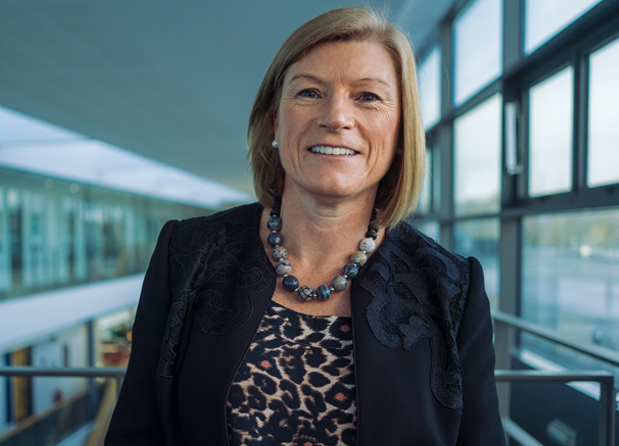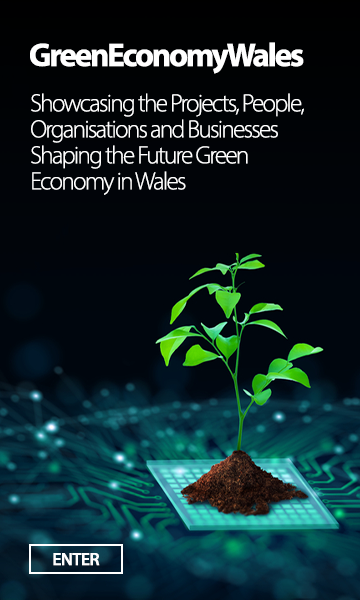 Written by;
Written by;
Professor Cara Aitchison,
President and Vice-Chancellor of Cardiff Metropolitan University and Board member of the CCR Economic Growth Partnership
As spring turns to summer and we look forward to the progressive lifting of restrictions on our personal and working lives, we at Cardiff Metropolitan University are optimistic about our ability to recover from the effects of the pandemic. We started planning our response early, took advantage of our strong financial position, put our students first and helped the wider community as much as we could.
Taking action early
We were proactive as a university in our response to the crisis. We set up a Covid-19 Planning and Response Group back in January. We describe our University as being ‘values-led’ and we have a strong health and wellbeing ethos, so we tried to tackle the Coronavirus crisis from that perspective from the outset, thinking about how we would ensure that our staff and students were best served to enable them to bounce back strongly when the time came.
We moved all learning, teaching and student support online and also provided a lot of online support for staff in the form of individual check-ups, team meetings and a new Weekly Update in the form of a newsletter that has had excellent engagement from staff across the University. The crisis has galvanised the staff and, paradoxically, we’ve probably got higher staff morale now than at any time I can remember since I joined the university four years ago.
Surviving the financial challenge
We did a lot of work three years ago to rebalance our finances and, although actions such as losing over 10% of the University’s staff to voluntary severance in 2017 were painful for all of us, it is those actions that have put us in a strong financial position to be able to withstand this turn of events. We also embarked three years ago on a growth programme: we’ve increased turnover from under £100m when I joined to £108m last year; we’ve increased student numbers by diversifying into new programme areas and we have further new programmes starting in September, including degrees in Policing, in Law and in Architecture; and we’ve improved quality, as recorded through measures like the National Student Survey.
We were the first university in Wales to say we would not charge students for their residential accommodation in the summer term. That meant we’ve lost a major income stream for this term in the residency fees, and we’ve also lost all the catering income, the conference income, and income from summer schools and short courses.
This term that amounts to £4m, which is almost 4% of our annual turnover. We can withstand that because our budgets for this year were all on track and we were due to make a fairly significant surplus, which we had earmarked for investment into capital spending.
The whole sector is anticipating a significant downturn in international students in the next academic year. For us, that’s mitigated in two ways. One is that we increased our international student recruitment very dramatically this year, far in excess of target, so we were already receiving income in excess of that expected.
Secondly, we have two intakes a year for international students, who are mostly undertaking postgraduate programmes. We think our autumn intake will be significantly down, but many who planned to start in the autumn will now start with the February intake, so we should be able to bounce back within the next academic year rather than waiting until the following year. That said, we have no doubt that international recruitment will be down, particularly as the crisis and surrounding publicity of the death toll in the UK is being reported back to us by our recruitment teams around the world.
Putting students first
In addition to waiving residency fees for the summer term, we established a ‘no detriment’ policy, meaning students could not end the year with a final mark worse than the mark they were sitting on before all this chaos.
Some universities have abandoned exams, but we didn’t think that was in the best interest of students. So we introduced the no detriment policy which meant we had to rework all the processes around marking, assessment and exam boards and all the data processes and algorithms that go into working out a degree mark. Many staff worked day and night to get these systems and processes developed in time.
Helping the community
We’re confident that we can come back from this as a really strong, coherent community, but we’re also confident that we can make a contribution to helping businesses and our wider society recover.
Just after the lockdown began, I had staff asking if they could get back onto campus. We’ve got a world leading product design centre and we do amazing things with 3D printing, and staff were asking to get back there to make visors and other PPE.
We also had staff wanting to lend some of our expensive scientific equipment to the National Testing Centre at Milton Keynes. There are only 100 Thermo Fisher 7500 ABI Fast Platform machines in the UK and we’ve got two of them, so we lent our two to the national testing efforts for Covid-19 at the first national testing centre in Milton Keynes. We also became the trail centre for a new blood donation model in partnership with the Welsh Blood Service and have hosted the donation centre on campus, so we’ve had staff, students and Cardiff residents coming onto campus to donate blood.
Everyone was willing to help and wanted to feel that they’d made a contribution. Our people have made us proud, and I’m confident that they will continue to do Wales proud in the months and years ahead.
That’s why I am optimistic about our ability to recover as an institution, but more importantly about our ability to contribute to recovery in industry and business, and in wider civic society. There will need to be a lot of rebuilding in society as well as in the economy after the pandemic is over. We believe we can contribute in five ways, which form the subject of a special feature article that accompanies this column on Business News Wales.





















